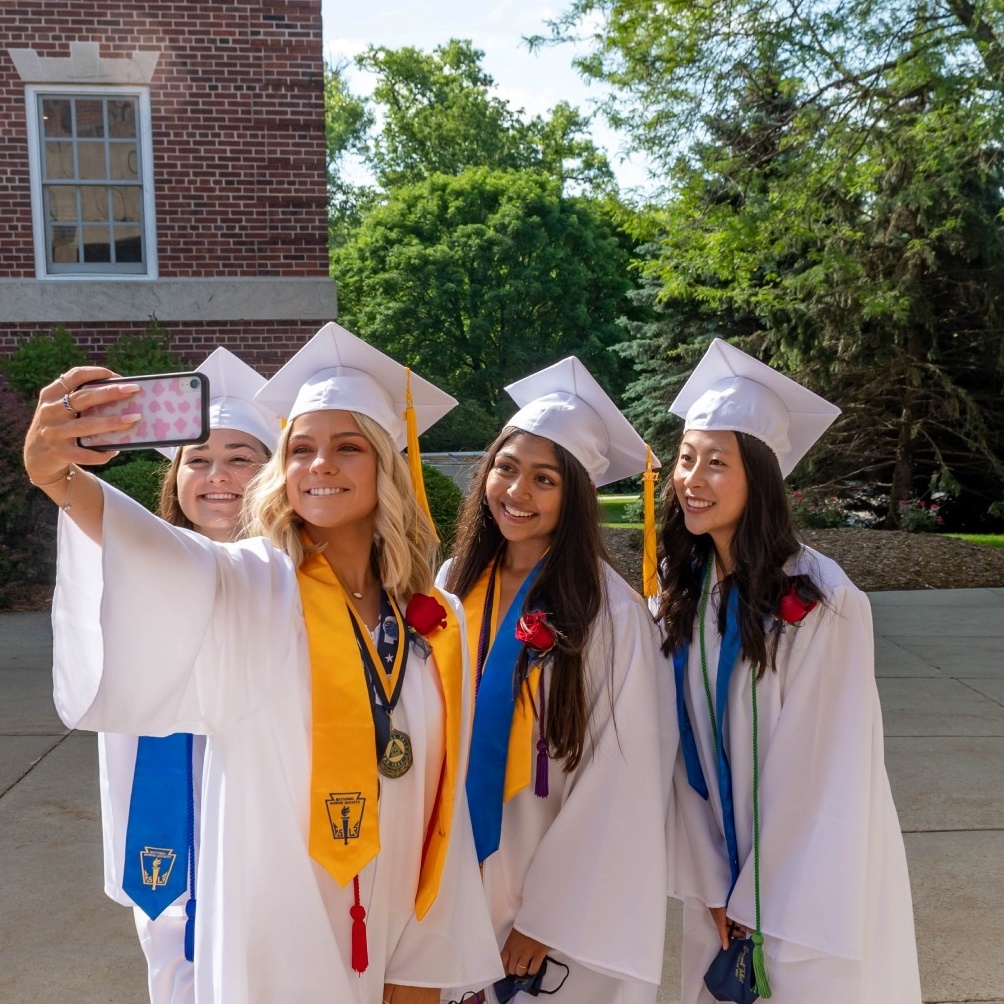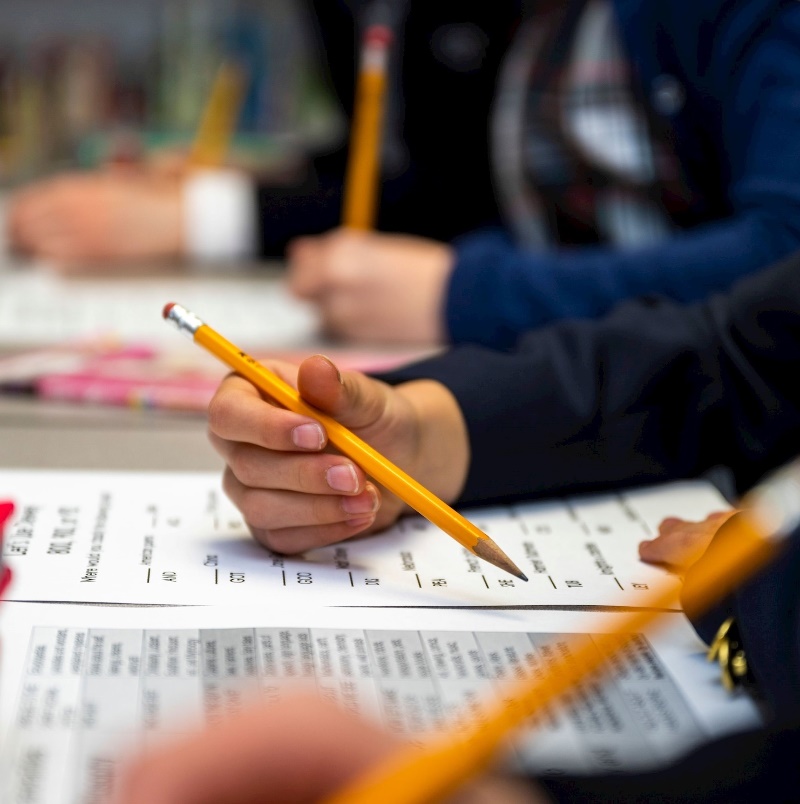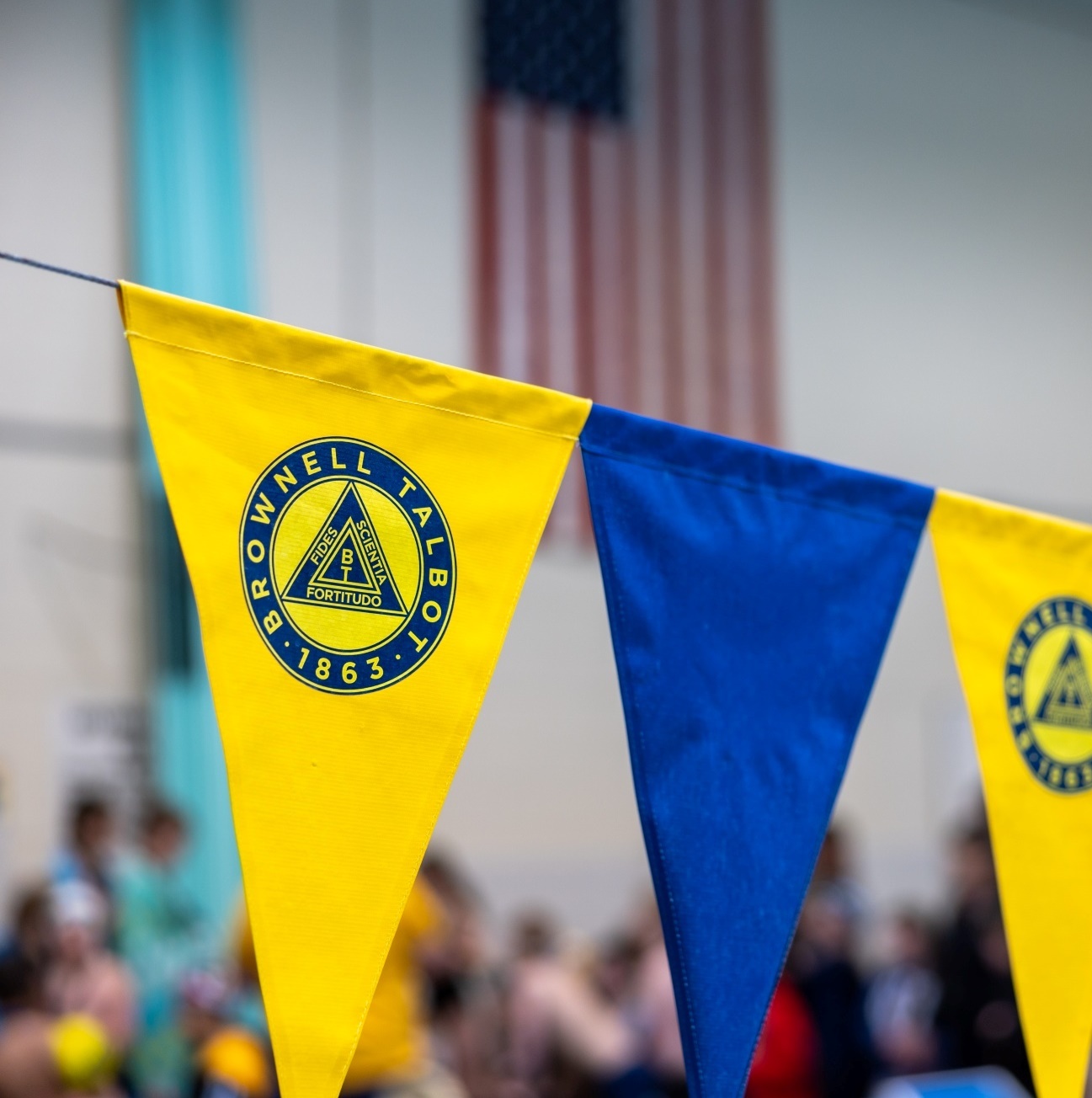Reading during the summer months is crucial for students to maintain and build upon their literacy skills developed throughout the academic year. The summer break provides an excellent opportunity for students to explore new genres, delve into captivating stories, and nurture their love for reading without the constraints of a structured curriculum. At Brownell Talbot, we recognize the immense benefits of summer reading and have carefully curated engaging and thought-provoking reading lists to inspire our students' intellectual curiosity and foster a lifelong passion for literature.
Lower School
The following is a list of optional recommended books for students entering third grade. Challenge books are also included on the list. Students may track their reading minutes for a small incentive at the start of the school year.
Fiction
“Nancy Drew” Series by Carolyn Keene
“The Hardy Boys” Series by Franklin W. Dixon
“Encyclopedia Brown” Series by Donaold J. Sobol
“The Time Warp Trio” Series by Jon Scieszka, John R. Erickson
“A to Z Mysteries” Series by Ron Roy
“Bailey School Kids” Series by Debbie Dadey & Marcia Jo
”Boxcar Children” Series by Warner
"My Father’s Dragon" by Ruth Stiles Gannet
"Sideways Stories from Wayside School" by Louis Sachar
"Summer Reading is Killing Me!" by Jon Scieszka
"The Chocolate Touch" by Patrick Catling
"The Haunting of Grade Three" by Grace Maccarone
“Geronimo Stilton” Series by Geronimo Stilton
“Franny K. Stein” series by Jim Benton
Nonfiction
"Frogs" (and other books by this author) by Seymour Simon
“If You. . .” Series Published by Scholastic
(If You Were on the Mayflower)
“Eyewitness Juniors” Series by Alfred A. Knof, Inc.
(Amazing Birds)
"Just a Few Words, Mr. Lincoln" by Jean Fritz
“My America” series
“Everything You Need to Know About…” series by DK publisher
Fiction or Nonfiction – you decide!
”Magic Treehouse” Series by Mary Pope Osborne
Poetry
Poetry by Jack Prelutsky, Douglas Florian, Bruce Lansky, and Shel Silverstein
Looking for a Challenge?
"Tales of a Fourth Grade Nothing" by Judy Blume
"The Secret School" by AVI
"Worth" by A. LaFaye
"Ruby Holler" by Sharon Creech
"The Year of Miss Agnes" by Kirkpatrick Hill
"A Cricket in Times Square" by George Selden
How to Eat Fried Worms Thomas Rockwell
"Superfudge" by Judy Blume
"Bunnicula" by James Howe
"Prairie Songs" by Pam Conrad
"The Homework Machine" by Dan Gutman
"Stuart Little" by E.B. White
"Knots in My Yo-Yo String" by Jerry Spinelli
"Swindle" by Gordon Korman
Books from the Dive, Everest, or Island series by Gordon Korman
Series of Unfortunate Events series by Lemony Snickett
Wings of Fire series by Tui T. Sutherland
Warriors series by Erin Hunter
Additional Exercises
These fiction and nonfiction optional reading texts are themed around the exciting world of entrepreneurs which is the first fourth grade inquiry project. These texts are aimed to spark enthusiasm and ignite curiosity among our young upcoming fourth grade entrepreneurs.
"Lion Lights" by Richard Turere (nonfiction)
"Bee Fearless" by Mikaila Ulmer (nonfiction)
Billy Sure Kid Entrepreneur (any text in the series) by Luke Sharpe (fiction)
Additional Exercises
Middle School
Rising fifth graders are asked to choose ONE summer reading book from two choices:
CHOICE 1: "Garvey’s Choice" by Nikki Grimes (learn more about the novel HERE)
CHOICE 2: "Hatchet" by Gary Paulsen (learn more about the novel HERE)
Each of these novels includes a main character who has to use grit and perseverance to overcome a challenge. As you read, please think of times when you have used grit and perseverance in your own life. We’ll use these ideas when you come to school at the beginning of the year!
If you choose to read "Garvey’s Choice":
- Please use these questions to help you think about the book. The questions are divided by poem titles. There are 105 poems that make up this book, and each poem has between 2-4 questions.
- Please choose 25 poems for which to answer a question. Choose one question from the list above and write the answer to the question in the open space on the page in your book. See an example HERE.
- Use the Reading With a Pen bookmark to annotate other areas of the book when you have ideas or emotions!
If you choose to read "Hatchet":
- Please use these questions to help you think about the book. The questions are divided by chapters. There are 19 chapters and an epilogue. Make sure to read the epilogue!
- Please choose 10 chapters for which to answer a question. Choose one question from the list above and write the answer to the question in the open space on the page in your book. See an example HERE.
- Use the Reading With a Pen bookmark to annotate other areas of the book when you have ideas or emotions!
Additional Exercises
Optional IXL and math exercises.
Required book: "The Jules Verne Prophecy" by Larry Schwarz and Iva-Marie Palmer
This fast-paced, larger-than-life Parisian adventure is filled with action, intrigue, and three friends who are dead set on cracking the Jules Verne mystery. This novel will lead into a Jules Verne inquiry unit, experiencing excerpts from Verne’s works "Twenty Thousand Leagues Under the Sea", "Journey to the Center of the Earth", and "From the Earth to the Moon".
This year students will be challenged in a variety of ways. It is important to stay engaged in reading during the summer months. This summer students will be reading the Dystopian novel “The Giver.” As they read, students need to complete the detailed instructions. Annotating while reading will become more challenging and specific in seventh grade. Annotations are interactions with the text as you read. Students are encouraged to write down their thoughts in the margins and spaces of the pages.
“The Giver” by Lois Lowry (ISBN 9780544336261). Students should follow the specific, detailed directions from Mrs. Vetter.
Seventh graders also need to do the journaling activities related to “How to be an Explorer of The World, Portable Life Museum,” by Keri Smith. These journaling activities will allow students to become close observers of the world around them. This stimulating and creative book provides students guidance into deep exploration and appreciation of what is around them asking them to stop and be mindful in even small moments. Students should follow the specific, detailed directions from Mrs. Vetter.
S.E. Hinton, "The Outsiders" (Viking Books for Young Readers, ISBN, 978-0142407332)
Harper Lee, "To Kill a Mockingbird" (Harper Perennial, ISBN 978-0060935467)
Overview and guiding questions available here.
Upper School
This summer, Upper School students will embark on a literary journey that connects directly to the heart of who we are as a community. Each grade level will explore a carefully curated selection of works that illuminate one of our school's Core Values, allowing students to deepen their understanding of these foundational principles through the power of storytelling and preparing them for meaningful discussions and reflections when they return to campus in the fall.
Samantha Harvey, "Orbital" (Grove Press, ISBN 9780802163622)
Ursula K. Le Guin, "Lao Tzu: Tao Te Ching: A Book about the Way and the Power of the Way" (Shambhala, ISBN 978-1611807240)
Overview and guiding questions available here.
This summer, Upper School students will embark on a literary journey that connects directly to the heart of who we are as a community. Each grade level will explore a carefully curated selection of works that illuminate one of our school's Core Values, allowing students to deepen their understanding of these foundational principles through the power of storytelling and preparing them for meaningful discussions and reflections when they return to campus in the fall.
John Hersey, "Hiroshima" (Vintage, ISBN 9780679721031)
Kazuo Ishiguro, "Klara and the Sun" (Vintage, ISBN 9780593311295)
Overview and guiding questions available here.
This summer, Upper School students will embark on a literary journey that connects directly to the heart of who we are as a community. Each grade level will explore a carefully curated selection of works that illuminate one of our school's Core Values, allowing students to deepen their understanding of these foundational principles through the power of storytelling and preparing them for meaningful discussions and reflections when they return to campus in the fall.
Annie Dillard, "Teaching a Stone to Talk" (Harper Perennial, ISBN 9780060915414)
Tommy Orange, "There There" (Vintage Books, ISBN 9780525436140)
Overview and guiding questions available here.
This summer, Upper School students will embark on a literary journey that connects directly to the heart of who we are as a community. Each grade level will explore a carefully curated selection of works that illuminate one of our school's Core Values, allowing students to deepen their understanding of these foundational principles through the power of storytelling and preparing them for meaningful discussions and reflections when they return to campus in the fall.
Mohsin Hamid, "Exit West" (Riverhead Books, ISBN 9780735212206)
Upton Sinclair, "The Jungle" (Second Norton Critical Edition, ISBN 978-0-393-42036-4)
Overview and guiding questions/considerations available here.
History teacher Dan Coffey will send all students the Guided Readings & Summer Work via email sometime in mid-June. This work is done using the same textbook that will be used during the school year itself. Specifically, students will work on chapters 1-3 over the summer months.
History teacher Mark Smith will notify all students of their assigned section of Charles Mann’s 1493: Uncovering the New World Columbus Created (Knopf Publishing, ISBN 978-0307265722). Students will read one section of this book, create notes from the reading, key concepts explored, and questions to consider. This will then be used for an in-class activity during the first six weeks of the school year.





